Fiction books have been a staple of human culture for centuries, providing entertainment and escape to countless readers. The history of fiction writing can be traced back to ancient civilizations, but the first recorded work of fiction that still exists today is widely considered to be “The Tale of Genji,” written in Japan around the year 1000.
The Tale of Genji
“The Tale of Genji” was written by the noblewoman Murasaki Shikibu and tells the story of the life and loves of the titular Genji, a handsome and charismatic nobleman at the imperial court. The book is often referred to as the world’s first novel, and is considered a masterpiece of classical Japanese literature. It is a sprawling work that explores themes of love, power, and the fleeting nature of human life, and it has been widely read and admired for over a thousand years.
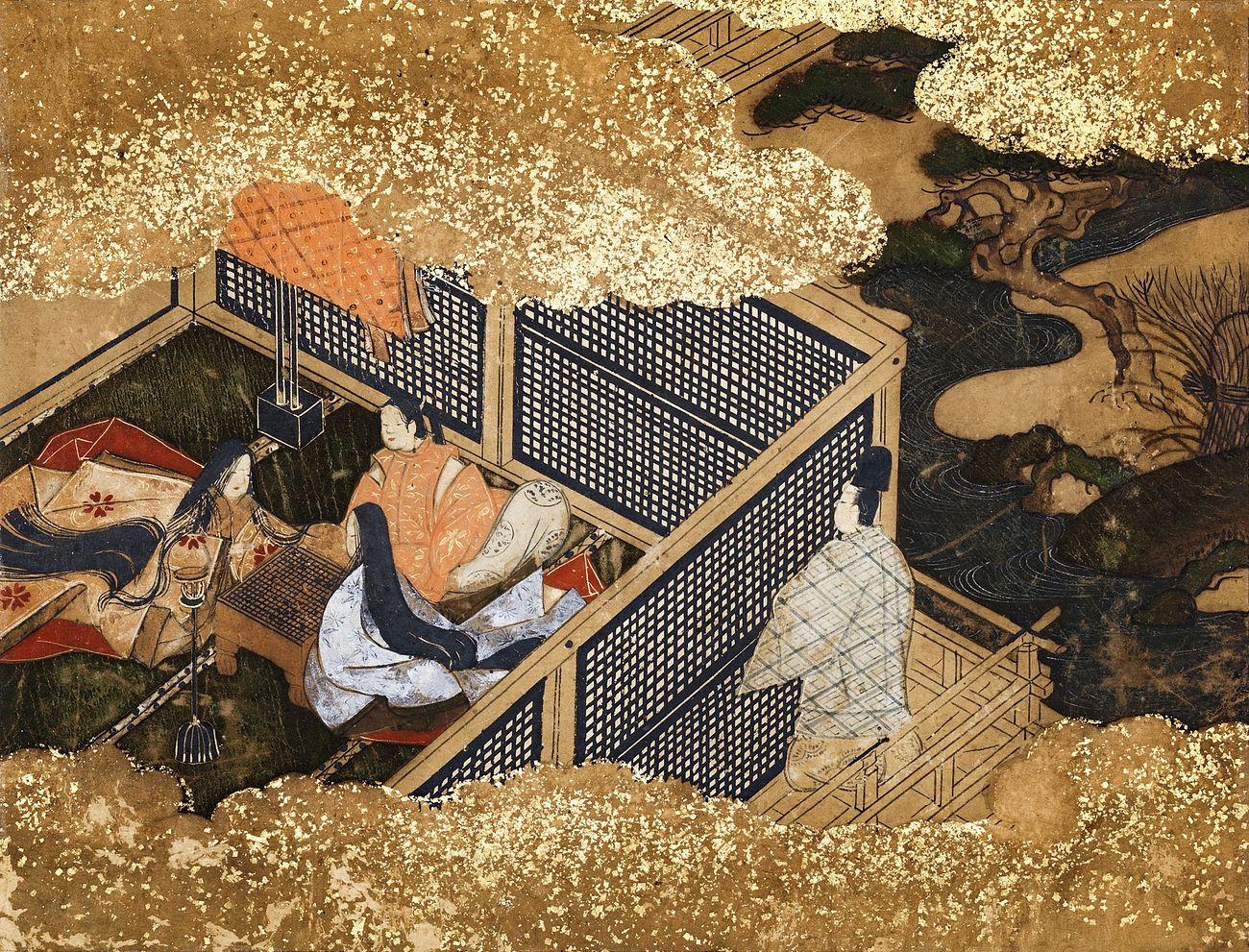
While “The Tale of Genji” is considered the first fiction book, it is by no means the only work of fiction to have been written in the ancient world. The ancient Greeks and Romans both had a rich tradition of storytelling, and works such as the “Epic of Gilgamesh” and “The Aeneid” are considered some of the earliest examples of written fiction. These works combined elements of history, mythology, and pure invention to create narratives that captivated their audiences and have remained popular to this day.
Fiction writing continued to evolve over the centuries, and by the Middle Ages, the novel as we know it today was starting to take shape. Chaucer’s “Canterbury Tales” is considered one of the earliest examples of the novel in England, and it paved the way for later works such as “Don Quixote” by Miguel de Cervantes and “Robinson Crusoe” by Daniel Defoe. These works marked the beginning of the modern novel and established many of the conventions that are still in use today, such as the use of character development and linear plotlines.
In the centuries that followed, the novel continued to evolve and gain popularity, and it has now become one of the most beloved and widely read forms of entertainment in the world. From Jane Austen’s classic romances to Charles Dickens’ sprawling social dramas, the novel has been used to explore a wide range of themes and issues, and has been instrumental in shaping the way we think about the world.
While the first fiction book may have been written over a thousand years ago, its influence can still be felt today. From the latest bestsellers to the classic works of literature that have stood the test of time, fiction has been a constant source of inspiration, escape, and entertainment for generations of readers. Whether you’re a fan of mystery, romance, science fiction, or any other genre, there’s no denying that the first fiction book has had a profound and lasting impact on the world.
Summary of “The Tale of Genji”
The Tale of Genji is a Japanese classic novel written in the 11th century by the noblewoman Murasaki Shikibu. It is considered one of the greatest works of Japanese literature and a masterpiece of world literature. The Tale of Genji is a complex and multifaceted novel that covers a wide range of themes, such as love, romance, politics, society, and spirituality.
The novel tells the story of Hikaru Genji, the son of an emperor, who is forced to leave the imperial palace after his mother dies. Genji becomes a courtier and tries to navigate the complex social and political landscape of Heian-era Japan. The novel follows Genji’s relationships with various women and his quest for love and fulfillment.
The novel is divided into 54 chapters, each focusing on a particular event or relationship in Genji’s life. The chapters are not arranged chronologically, but rather thematically. The novel is written in a poetic and lyrical style, with rich descriptions of nature and court life. Murasaki Shikibu also includes many literary allusions and references to Chinese and Japanese classical literature.
One of the central themes of the novel is the tension between the aristocratic court culture and the emerging warrior culture of Japan. Genji embodies the courtly ideal of the “gentleman scholar,” who is skilled in music, poetry, and the arts, but he also has a martial side and participates in battles and political intrigues. The novel also explores the role of women in Heian-era Japan and their relationships with men. Murasaki Shikibu portrays women as complex and nuanced characters, with their own desires and aspirations.
The novel also has a spiritual dimension, with many references to Buddhist and Shinto beliefs. Genji is often portrayed as a spiritual seeker, searching for meaning and enlightenment. The novel explores the transience of life and the impermanence of all things, a central theme in Buddhist philosophy.
The Tale of Genji has had a profound influence on Japanese culture and literature. It has been translated into many languages and adapted into various art forms, such as plays, films, and manga. The novel’s rich and nuanced portrayal of court life and its exploration of human emotions and relationships continue to captivate readers today.
The Tale of Genji is a masterpiece of world literature and an essential work for anyone interested in Japanese culture and history. Murasaki Shikibu’s poetic and lyrical style, combined with her insightful portrayal of court life and human emotions, makes The Tale of Genji a timeless classic.
Keywords: first fiction book, The Tale of Genji, Murasaki Shikibu, ancient civilizations, classical Japanese literature, novel, Middle Ages, Canterbury Tales, Don Quixote, Robinson Crusoe, Jane Austen, Charles Dickens, popular forms of entertainment, the tale of genji first book, first novel the tale of genji
Check out our Novel Writing Workbooks
Check out Little Tree Food Forest for articles on food forests and homesteading.
Check out FoodieScapes for articles on growing, fermenting and preserving food.
Subscribe to our newsletter to get information delivered to your inbox on how to write a book, outlining your novel, keeping journals, marketing your novel, self-publishing, writing poetry and more.



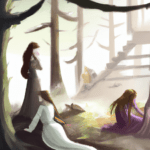
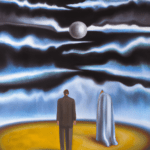



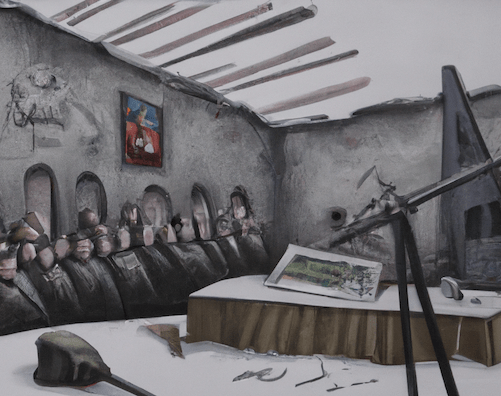

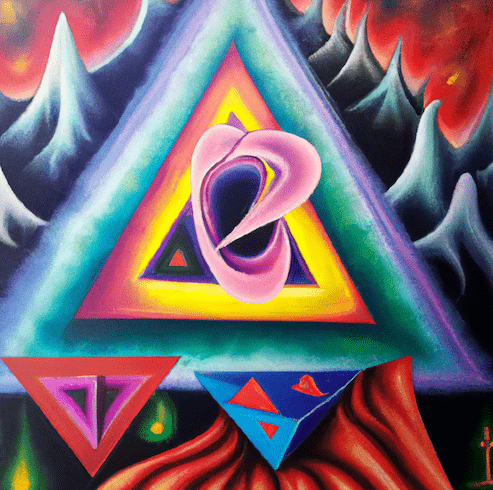
One thought on “The Tale of Genji: The First Ever Written Fiction Book”